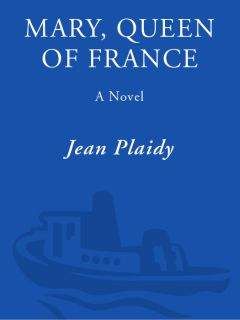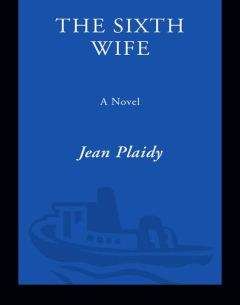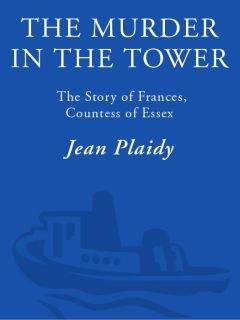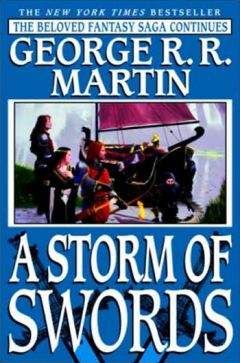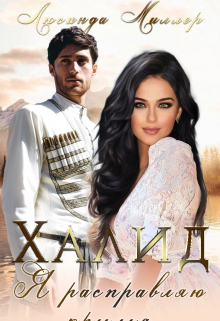Jean Plaidy - To Hold the Crown: The Story of King Henry VII and Elizabeth of York
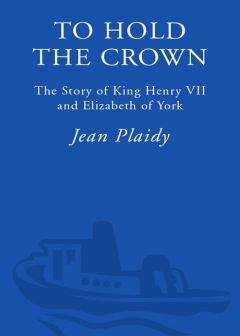
Помощь проекту
To Hold the Crown: The Story of King Henry VII and Elizabeth of York читать книгу онлайн
It was young Henry they should be praying for, not the old man. He was past praying for now.
“My lord.” It was the Archbishop putting his face close to the dying man’s. “The marriage of the Prince . . . Do you have any command?”
There was a brief silence. For a moment the King seemed to be more alive. His eyes sought those of his son. His lips moved. “The Prince will decide . . .,”he said.
That was how it would be. When he was no longer there, when Henry was the King he would do exactly what he pleased. He must not hamper the boy by making commands which he would disobey and then have to think up some elaborate reason to explain that he had not acted disobediently. Let him make his choice . . . freely . . . as he would in any case.
Moreover he had been cruel to Katharine. His conscience, which had been so quiet until now, was beginning to raise its head reproachfully.
He closed his eyes. They were watching him intently.
Then young Henry stood up. He knew that he was no longer Prince of Wales. He was the King.
King Henry the Eighth
hey were all coming to pay homage to the new King.
He detained Katharine for he said he would speak with her. She thought how handsome he was with his newly acquired dignity and his endearing delight in it.
He took her hands and kissed them.
“I had always intended that you should be my Queen,” he said.
Waves of gladness swept over her. It was truly so. He was smiling, well pleased, loving himself as well as her. She thought how charming he was . . . how young. All the miseries of the last years were falling away from her. This young man with those few words and looks of tenderness in his eyes had brushed them aside.
She would never forget. She would be grateful forever.
There were tears in his eyes. He saw them and they pleased him. He was the perfect chivalrous knight rescuing the lady in distress. It was a role he loved so well and had often played it in his imagination.
“That pleases you?” he asked.
She turned her head away to hide her emotion; and he liked that too.
He put his arms about her and kissed her.
“I shall never forget this moment,” she said. “I shall love you until the day I die.”
She heard a chaffinch sing in the gardens. Then the bells were pealing. In the streets the people were waiting to see him and his chosen bride.
“The King is dead,” they would say. “Gone is the old miser and in his place this handsome young man, this golden boy, every inch of him a king.”
Already they were proclaiming him.
“God bless the King. God save King Henry the Eighth.”
Bibliography
Aubrey, William Hickman Smith, National and Domestic History of England
Bruce, Marie Louise, The Making of Henry VIII
Chrimes, S. B., Henry VII
Gairdner, James, Henry VII
Gairdner, James, History and Life and Reign of Richard III
Gairdner, James, Life and Papers of Richard III
Green, John Richard, History of England
Green, Mary Anne Everett, Lives of the Princess of England
Guizot, M. Translated by Robert Black, History of France
Halsted, Caroline A., Richard III
Hume, David, History of England from the Invasion of Julius Caesar to the Revolution
Hume, Martin A. S., Spain: Its Greatness and Decay
Jenkins, Elizabeth, The Princes in the Tower
Kendall, Paul Murray, Richard III
Luke, Mary M., Catherine the Queen
Mattingly, Garrett, Catherine of Aragon
More, Sir Thomas, Life of Richard III
Prescott, William H. Edited by John Foster Kirk, History of the Reign of Ferdinand and Isabella the Catholic
Ramsey, J. H., Lancaster and York
Stephen, Sir Leslie and Lee, Sir Sydney, The Dictionary of National Biography
Strickland, Agnes, The Lives of the Queens of England
Timbs, John and Gunn, Alexander, Abbeys, Castles and Ancient Halls of England and Wales
Wade, John, British History
Walpole, Horace, Historic Doubts on the Life of Richard III
Williams, Charles, Henry VII
A Reader’s
Group Guide
he marriage of Henry Tudor and Elizabeth of York united the Lancasters and the Yorks, and began the Tudor Dynasty. Henry’s claim to the throne was tencuous but with Elizabeth of York, the daughter of King Edward IV, as his wife, he created a greater claim to the throne not only for himself, but also for his children. Although his reign was ripe with pretenders to the throne, Henry’s sharp mind, rather than physical combat, enabled him to maintain his position and secure the way for his second son, Henry VIII. Plaidy’s well-researched novel displays a changed England, finally at peace.
The following questions were created to help your reading group discuss Jean Plaidy’s To Hold the Crown.
1. The novel begins with a quote from Shakespeare’s Henry IV, Part 2: “Uneasy lies the head that wears a crown.” How does this quote relate to those who wear crowns in this novel? Think specifically of Henry Tudor, James IV of Scotland as well as Isabella and Ferdinand.
2. Henry Tudor is described throughout the book as being very “calm.” How does this personality trait affect his decisions in matters of state? In his marriage?
3. Elizabeth Woodville and Margaret Beaufort have a superficial relationship for the sake of their children, the King and Queen. As mothers-in-law they are required to respect each other, yet there is much tension between the two. Describe some of their points of contention. Were you reminded of modern relationships between any of your relatives?
4. At the beginning of the novel, Plaidy describes Elizabeth: “That was her life—buffeted from one situation to another. Never was she consulted as to her wishes. They would do with her as best suited them” (The Birth of a Prince). Discuss the complexities of being a royal woman with no free will. How does Elizabeth deal with her situation? How would you feel if so much of your life was decided for you?
5. When Elizabeth’s first baby is born, her mother thinks: “Oh no, Arthur was not going to find life easy with a name like that and it was a great error of judgment to have saddled him with it” (The Birth of a Prince). Why was he named Arthur? How does her prediction come true?
6. Cecilia and Elizabeth are the two eldest York sisters, yet they are very different. Cecilia sees her sister Elizabeth as “merely the King’s wife” (The Baker’s Boy). How was being his wife, and not his partner, beneficial to Elizabeth? How does Cecilia avoid Elizabeth’s fate? Had you been at Court, would you be an Elizabeth or a Cecilia? Why?
7. Elizabeth Woodville mourns her two sons Edward V and Richard IV and is haunted by the fact that she will never know what happened to them. From what you knew before reading this book, what did you think had happened to them? Were you surprised by Plaidy’s interpretation? Why or why not?
8. Who was Perkin Warbeck? Who supported him? Why was he so menacing to Henry, when Henry knew he was a pretender?
9. Henry Tudor discovers that Sir William Stanley, despite changing sides from Richard III to help Henry win the battle of Bosworth Field, has been treacherous in dealing with Perkin Warbeck. Discuss how even with great power, Henry is unable to control every move in his Court. What did you think of the way he handled Stanley’s betrayal?
10. How was Henry VIII described in his younger years? How do you imagine he acted as a child? Discuss Henry VIII’s relationships with his siblings. Early on we see his envy of Arthur and his disdain for Margaret. What motivates these feelings? Think of some of his early actions and ambitions—did any of his wishes come true?
11. What was Henry Tudor’s motivation behind the forced friendship of the Earl of Warwick and Perkin Warbeck? Why was it necessary to accuse Warwick? What did you think about Henry’s plot? What would you have done, had you been in his position?
12. Katharine of Aragon is originally married to Arthur. Why is she, in the eyes of the church, allowed to marry Henry after Arthur’s passing?
13. Elizabeth of York “died on the eleventh of February, nine days after the birth of the child. It was her own birthday and she was thirty-eight years old.”(Birth and Death). What does her age tell you about the quality of healthcare at the time? After having six children, were you surprised to know she was pregnant again? What does this tell you about the importance of children in a royal family?
14. Juana has a very passionate relationship with Philip, unlike the conventional woman of the time. She is described as being mad, but do you suppose she is? Or is she perhaps a strong-willed woman living in an age that is unprepared for her open jealousy and uninhibited emotions? Could she have been more stable than people thought? What do you think?
15. Throughout the novel, Henry VIII is compared by various people to his grandfather, Edward IV. From what you learn of Edward and from what you know of Henry, both in this novel and later in his life, what do you think of the comparison? Is it accurate? Why or why not?
An Excerpt from
Katharine of Aragon
The Arena
he sun picked out sharp flints in the gray walls of the towers so that they glinted like diamonds. The heat was great, and the courtiers sweated beneath their stomachers over which their doublets were elegantly laced; they did not move even to throw back their long loose-sleeved gowns. Each man and woman among them was intent on what was going on in the arena before them, where a lion—one of the finest and fiercest in the King’s menagerie—was engaged in a bloody fight with four English mastiffs. The dogs were sturdy and game; but this lion had never been beaten. He roared his contempt of the four dogs, and the spectators cheered him.
“Now, Rex, get to work,” shouted a boy who was seated among the royal party. His cheeks were ruddy, his hair gleamed reddish gold in the sunlight; and his voice was shrill with excitement.
The girl who sat beside him, and who was a few years older, laid a restraining hand on his arm; and several people let their attention stray from the animals to the children. Many found themselves catching the boy’s excitement, for there was something infectious about the vitality and gaiety of young Prince Henry.
As for Henry, he was aware of nothing but the fight in the arena. He wanted the mastiffs to win, yet he did not believe they could. Rex was the finest lion in the world, which was why he had been called Rex.
The King from his seat of honor was watchful. He sat erect, not so magnificently attired as many of his subjects, for he was a man who resented wasting money on outward show. Money, in his opinion, should be used to create more money. It had been his policy ever since Bosworth Field. And the result? A depleted treasury was now a full one, carefully watched over by the King’s miserly eye, continually augmented by his clever schemes; although he would be the first to admit that he owed a great deal to those two able ministers of his—Richard Empson and Edmund Dudley—who now sat near the royal party, their lawyers’ eyes alert.
The King’s gaze rested briefly on his Queen—a beautiful woman of whom he was secretly proud. But he was not a man to show his feelings and would never allow Elizabeth of York to know how much he esteemed her. When a man’s claim to the throne was doubtful, when there was the hint of bastardy among his forbears, he must be careful. Henry VII was a careful man.
Elizabeth had been a good wife and he had never regretted the marriage, even when he considered his early love for Maud Herbert and his more mature passion for Katherine Lee. He was not a man who would allow his emotions to interfere with his ambitions.
Once Richard III had been defeated, once Henry knew that the great ambition was about to be realized, he had ceased to think of Katherine Lee; he had known there was only one suitable bride for him, and that was Elizabeth of York, that the Houses of York and Lancaster might thus be united and bring peace to England. Henry VII would never wage war if he could help it, for to him it represented the loss of gold.
He looked at his family and allowed his feeling of pleasure temporarily to turn up the corners of his stern mouth. Two sons and two daughters.
“Fair enough, fair enough,” he murmured to himself.
Elizabeth had been six times pregnant and they had lost only two so far, which, considering the fate of most children, was good fortune indeed.
It was true that Arthur, the eldest and Prince of Wales, who was not quite fifteen, was a sickly boy. He was handsome enough with his pretty pink and white complexion, but that was not in his case the sign of health. Arthur coughed too much; there were occasions when he spat blood; yet he lived.
Perhaps there would have been cause for anxiety if Arthur had not possessed such a brother as Henry. There was a Prince to delight the eyes of any parent. Glances were even now straying to this ten-year-old boy. It was the same when they went among the people. It was young Henry whom the people called for. It was for him they had their smiles. Fortunately, Arthur had the sweetest temper and knew no envy. But perhaps he was too tired to feel envy; perhaps he was grateful to this robust, vital brother who could appear so fresh at the end of a day’s riding, who always knew how to respond to the people’s applause.
Between the two boys sat Margaret, a dignified Princess, looking older than twelve, keeping a watchful eye on her exuberant brother Henry who, strangely, did not seem to resent this. It was pleasant to see such affection between a brother and sister. And on the other side of Henry sat Mary, an enchanting creature of five years, a little wilful, because she was so pretty perhaps and doubtless overpampered because of it.
Four children, mused the King, and Arthur the only one whose health gives cause for anxiety. Edward’s daughter has done her duty well.
